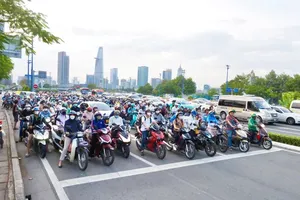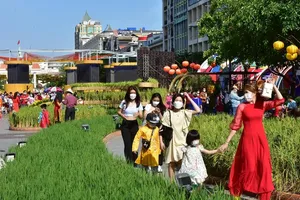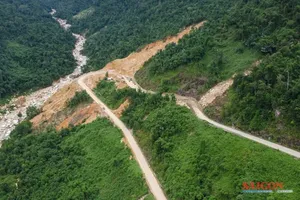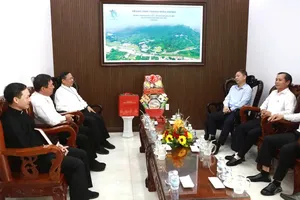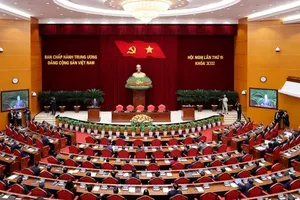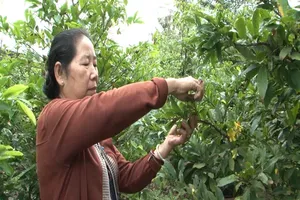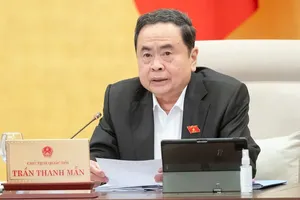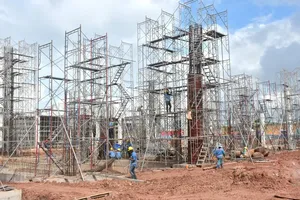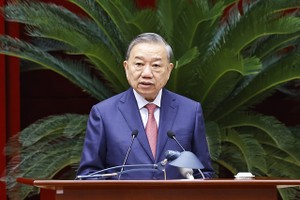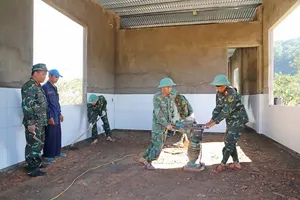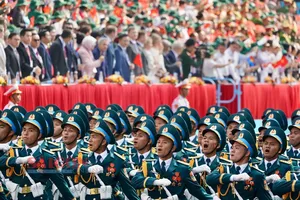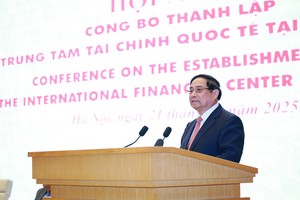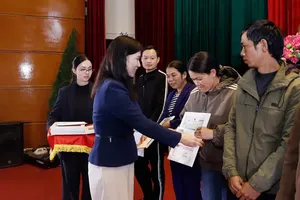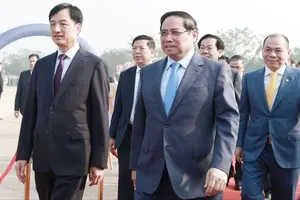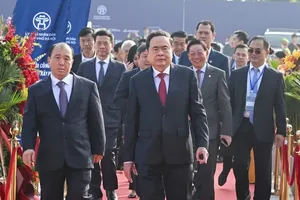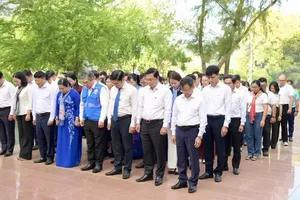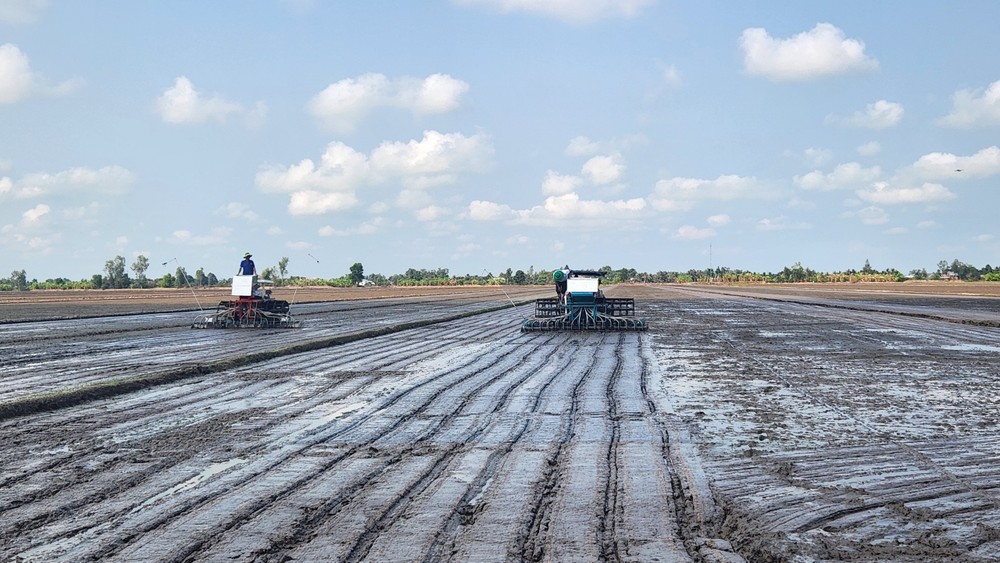
In the fields of Can Tho City’s Vinh Thanh District, representatives from the Department of Crop Production under the Ministry of Agriculture and Rural Development coordinated with the International Rice Research Institute (IRRI), the Department of Agriculture and Rural Development of Can Tho City performed the ritual of sowing seeds and fertilizing with mechanization, marking the launching ceremony of implementing the Project of one million hectares of high quality rice.
Attending the event were Deputy Minister Tran Thanh Nam of Agriculture and Rural Development, Deputy General Director Joanna Kane-Potaka of the International Rice Research Institute (IRRI), Vice Chairman Nguyen Ngoc He of the Can Tho City People's Committee and private businesses, cooperatives, experts and farmers in Can Tho City.
Good seeds, alternate wetting and drying (AWD) - a water management technique, practiced to cultivate irrigated lowland rice with much less water than the usual system of maintaining continuous standing water in the crop field, site-specific nutrient management are used in the pilot paddy field. Moreover, integrated pest management (IPM) is applicable in the new rice field. Farmers will use combined harvesters to harvest rice and collect straw to make straw mushrooms and straw organic fertilizer.
Previously, farmers in the Mekong Delta used the average amount of rice seeds of about 100-150kg per ha but it is only 60kg per ha in the pilot field. In addition, the amount of fertilizer and pesticides is also reduced, with less spillage and post-harvest loss.
Nguyen Ngoc He, Vice Chairman of Can Tho City People's Committee, said that the city has a rice growing area of about 75,000 hectares, producing three crops annually with a total output of more than 1.3 million tons of rice.
During the period 2016-2022, 32,000 farmers in Can Tho City participated in the implementation of the VnSAT project on an area of 38,000 hectares. Initially, the project helped the city's rice industry gain some outstanding achievements. However, the rice industry still faces difficulties and challenges. Farmers’ income is still low while mechanization in some stages is not synchronized and there is wasteful use of many resources such as seeds, fertilizers, and pesticides. Worse, the rice industry is greatly affected by climate change.
The city pledged to make concerted efforts to successfully implement the Project of 1 million hectares of high quality rice. Furthermore, it will strive to build a specialized high-quality rice production area with a scale of 38,000 hectares by 2025, and 50,000 hectares in the 2026-2030 period, said the Vice Chairman of Can Tho City People's Committee.
The project of 1 million hectares of high quality rice is implemented in 12 provinces and cities in the Mekong Delta except for Ben Tre Province because Ben Tre has a small rice area. Before widely implementing the project, the Ministry of Agriculture and Rural Development decided to pilot it in 5 localities, including Can Tho City.
According to Deputy Director of the Department of Crop Production Le Thanh Tung, the Mekong Delta has been the key rice production region of the country, making a very important contribution to national and global food security. The project of one million hectares of high quality rice is not only a purely technical project, improving infrastructure for production but is a project to reorganize the entire rice industry in the Mekong Delta to reduce production costs and increase the value of rice grains, lower emissions and sustainably develop rural areas.
The project’s goal is to form cooperatives and farmer organizations, closely linked with businesses to consume rice at a higher level in terms of value, long-term stability and increased income for farmers.
